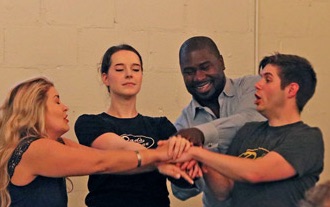Writing in Stanford Social Innovation Review, Annie Neimand, director of research, Center for Public Interest Communications, and Samantha Wright, managing director of impact, Exposure Labs, say that advocacy organizations and activists seeking to build more inclusive movements, need to create stories that can engage both familiar and new communities.

The authors say that will require breaking down “the prevailing ‘us’ versus ‘them’ narrative” that frequently shows up in the kind of storytelling many advocates and organizations use to advance their causes.
They find that the prevailing use of “the same plot structures, emotions, or characters” serves to “reinforce established divisions and hinder efforts to build a broader base of support.”
Neimand and Wright urge storytellers to “break traditional scripts” by doing the following:
Change up plots and emotion: Organizations should consider what will resonate with audiences “beyond the choir,” including what plot structure might pair best with the story environment around their issue.
Cast new characters: Steer clear of using stock characters who reinforce established narratives. Instead “elevate a new cast of characters that will engage a wider group of people.”
Tell stories where people are and want to be: That requires designing experiences that people actually want to join. A place to start is by “creatively identifying places where people who might not already support their cause naturally gather.”
Neimand and Wright say that the process of “sharing stories with different plot structures, emotions, and characters in places people want to be” will help “bridge the gap between ‘us’ and ‘them’” and “bring new groups of people together” around important social and environmental issues.



